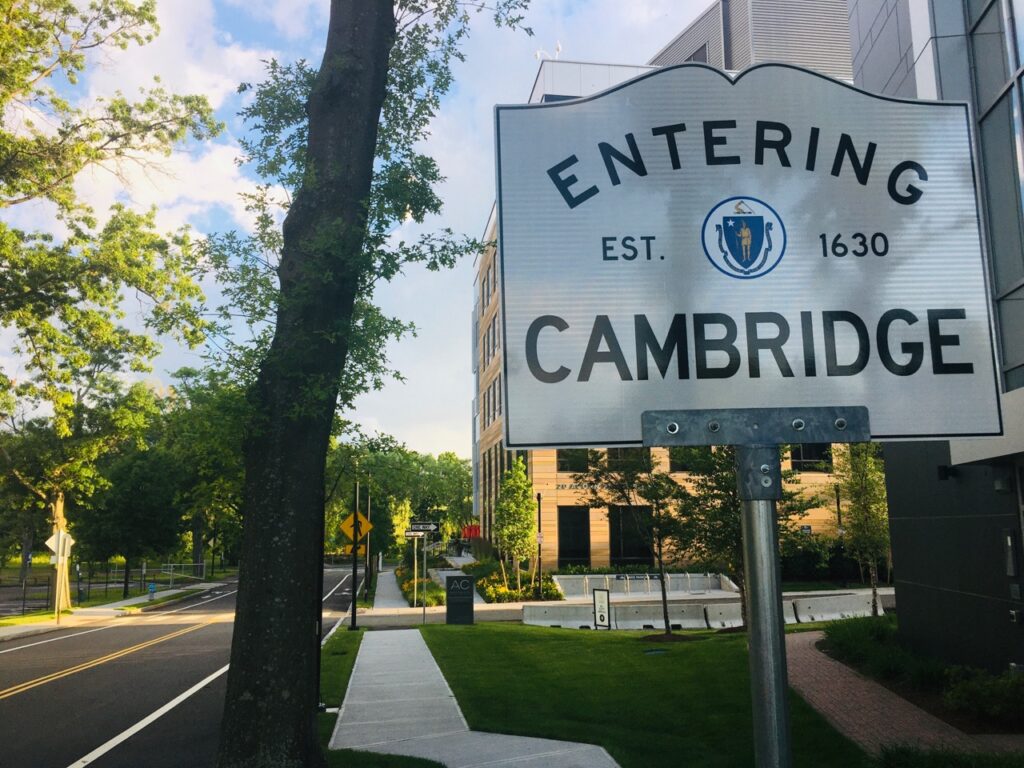A former Harvard graduate student convicted in 2004 of stabbing an unarmed Cambridge teen to death after a night of drinking died in mid-August.
Alexander Pring-Wilson died in his native Colorado Springs, Colorado. He was 47, according to his obituary announcement. The cause of death is not listed.
In Cambridge, Pring-Wilson’s criminal case came to exemplify the city’s growing class divide coupled with the role that stereotyping and wealth can play in criminal justice.
The son of two attorneys and a member of the influential Pring family in Colorado, Pring-Wilson was a Harvard master’s candidate and an aspiring environmental attorney in 2003. After a night of drinking in Somerville and Cambridge, he was walking alone in the rain down Western Avenue after dancing at the (now closed) Western Front music club.
About 2 a.m., he crossed paths with Michael Colono, an 18-year-old Cambridgeport resident who was in the back seat of a cousin’s car parked outside the Pizza Ring while waiting for a food order.
Colono laughed at Pring-Wilson’s drunken stagger and after trading insults the two started fighting on the sidewalk. Colono suffered five wounds from a nearly 4-inch military-style knife that Pring-Wilson said he used for cutting carpet, according to court testimony.
One of the wounds sliced Colon’s right ventricle, pouring blood into the pericardial sac encompassing his heart. It would soon fill up, making it more difficult for the heart to beat and eventually stop, which it later did at Beth Israel Deaconess hospital.
Manslaughter conviction

Although character evidence isn’t allowed in self-defense cases, Pring-Wilson’s attorneys fed reporters unflattering details about Colono’s juvenile record while promoting Pring-Wilson’s credentials and likening him to Gandhi in open court. It worked.
In its coverage of his bail hearing in Cambridge, one Boston newspaper described Pring-Wilson as “strikingly handsome.”
The defense team also enlisted the polling company of future Donald Trump adviser Kellyanne Conway in an attempt to change the location of Pring-Wilson’s trial to a more favorable venue in Berkshire County, where they claimed residents would be more tolerant of a defendant who carried a knife. The tactic was unsuccessful, but Pring-Wilson’s lawyers endured.
Despite a manslaughter conviction in Middlesex Superior Court, Pring-Wilson would eventually serve just 15 months for the stabbing death. His conviction was appealed by a high-priced legal team, leading to a retrial, a deadlocked jury and a mistrial, resulting in a 2008 plea agreement.
After the criminal trial
Pring-Wilson never got his master’s from Harvard. Instead, he returned to Colorado, where he went by the name Sander Wilson, and worked for his stepfather’s electronics company, Low Voltage Wiring, which does mostly federal government and military business as LVW Electronics.
In 10 years, Pring-Wilson worked his way up in the company from business operations to the senior position of chief operating officer, according to his LinkedIn account.
In a civil suit, a Middlesex County Superior Court judge ruled that Pring-Wilson didn’t do enough to avoid the fight and a knife was more force than he needed to survive the altercation. His parents’ homeowner’s insurance policy later covered the $260,000 cost of wrongful death damages determined in the civil claim.
The Harvard Crimson covered Pring-Wilson’s arrest and ensuing judicial proceedings closely. But Harvard officials never acknowledged publicly his role in Colono’s death. The university’s official news outlet, The Harvard Gazette, didn’t report on the stabbing or Pring-Wilson’s trials.
He is survived by his wife, Janice Olmstead, and daughter Charlotte Alice Wilson, the obituary reads.